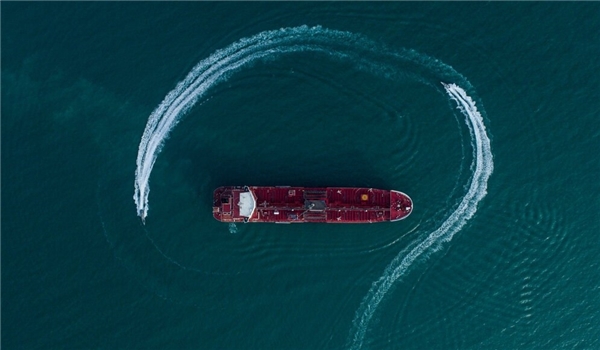According to the Global times, in the midst growing tensions with Iran, the United States aims to use maximum pressure and a secure maritime coalition to make Iran yield, but only a few countries have responded to Washington’s request and seek negotiation in the face of conflict.
The United States accused Iran of attacking oil tankers in the Persian Gulf, but did not provide convincing evidence. The so-called US-dominated coalition is part of the United States strategy to take strong action against Iran. So, the truth of such a coalition is that Washington is pressuring other countries to help pressure Tehran.
Some Americans wish that China could participate in the coalition, as this would mitigate the tensions between China and the United States caused by the US-led trade war against China and help the United States to block criticism that escort ships will damage interests of Iran, according to the Chinese site Voice of America. .
This is obviously an illusion. Iran is a comprehensive strategic partner of China and China is dedicated to safeguarding peace and stability in the Persian Gulf. Such a coalition would only damage the interests of Iran and, therefore, those of China. China would not hesitate to send military forces to defend its interests if its vessels sailing in the Gulf are in danger.
China has had close cooperation with Iran in the fight against pirates, which is also beneficial for other countries. The safety of maritime oil routes is related to global economic security: about 30 percent of the world’s crude oil passes through the Persian Gulf and the Gulf of Oman.
China has been making great efforts to maintain stability and security in the region. China has sent naval fleet on escort missions to the Gulf of Aden and waters of Somalia to escort ships. To better carry out the escorts, China cooperates with Djibouti and established a support base there for the Popular Liberation Army ships.
There should be a maritime coalition, but definitely not one run by the United States or one intended to serve American strategies. The coalition should safeguard the interests of the Gulf countries and their legitimate business partners.
Unlike the United States, its allies have seen through controversy. Germany did not agree with the escorts in the Persian Gulf and said that both the United States and Iran should avoid escalating the situation and seek political solutions. Maritime transport routes are currently not threatened, but they would be if escorts lead to real military conflicts.
Germany, France and the United Kingdom have created a trade solution mechanism to trade with Iran while avoiding US sanctions. UU., An effort to mediate the situation.
For their part, Iran seeks to build its own coalition. The Iranian president has contacted the President of Turkey, Recep Tayyip Erdogan, the Prime Minister of Pakistan, Imran Khan, and the Emir of Qatar, Tamim bin Hamad Al Thani. The Iranian president assured the three leaders that security in the Persian Gulf and the Gulf of Oman is a key foreign policy principle sustained by the Islamic Republic, and reaffirmed that only the “joint efforts” of the countries of the region can create regional stability

